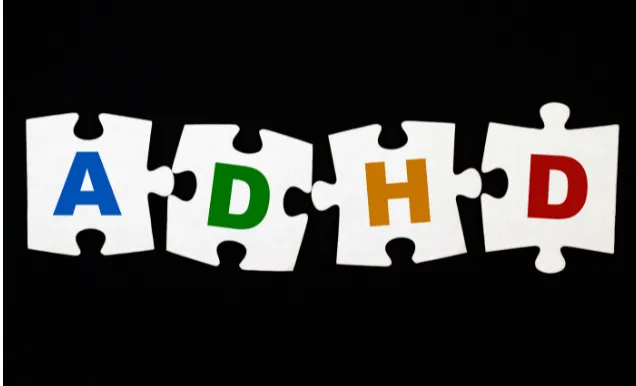Today, let’s explore the topic of imposter syndrome. Imposter syndrome is a phenomenon not exclusive to individuals with ADHD. It’s a phenomenon that many of us experience at some point in our lives, and it can show up in many different areas, such as academics, work, relationships, and even hobbies or personal interests.
However, the combination of ADHD related challenges and external factors make Imposter Syndrome far more common in the ADHD population. Recognizing and understanding this connection is a crucial step to addressing imposter syndrome a fostering a sense of self-acceptance and confidence.
So, what is Imposter Syndrome?
It’s that nagging feeling of being a fraud or secretly believing that we don’t deserve our achievements or success. Imposter syndrome can also manifest as the terrible fear that you’ll suddenly be exposed as the fake you feel that you are. It can be a real confidence killer, but it’s important to remember that you’re not alone. The key is to be aware of its presence and work towards managing and overcoming it.

What’s the connection to ADHD?
For individuals with ADHD, imposter syndrome is even more prevalent. There are a few reasons behind this connection. One reason is that ADHD is in essence, challenges with executive functioning skills. Things like organization, time management, getting started with tasks and completing them can be more difficult for individuals with ADHD. As a result, they face more setbacks or feel like they are not measuring up to societal expectations. This can lead to self-doubt and a sense of being an imposter in their own accomplishments.
Another factor is the tendency for individuals with ADHD to compare themselves to others. Due to the naturally distractible nature of ADHD, it can be easy to notice other people’s achievements and feel inadequate in comparison. This constant comparison can fuel the imposter syndrome, making individuals with ADHD doubt their own skills and abilities.
Moreover, the nature of ADHD itself can contribute to imposter syndrome. ADHD is often misunderstood and can be stigmatized in society. This can lead individuals with ADHD to internalize negative beliefs about themselves, feeling like they are not “normal” or that they have to constantly hide their struggles. These feelings of not fitting in can contribute to imposter syndrome, as individuals may believe they are not truly deserving of their successes.
How do you know if you have imposter syndrome? What does it look like and feel like? Here are some of the ways that imposter syndrome may show up in your life.

- “I’m just lucky.” – You might find yourself dismissing your accomplishments as mere luck. Instead of acknowledging your hard work and talent, you attribute it to external factors, downplaying your success.
- “Everyone else is smarter than me.” – This is a common thought among those with ADHD. You may feel like everyone else has it all figured out while you struggle to keep up. This can lead to feelings of incompetence and reinforce the belief that you’re an imposter.
- “I must work twice as hard to prove myself.” – People with ADHD often have to put in extra effort to manage their symptoms and keep up with others. While this tenacity is admirable, it can also lead to the belief that unless you work twice as hard as everyone else, you don’t deserve your accomplishments.
- “Oh, anyone could do that. It’s not a big deal.” Downplaying a strength or talent is a common manifestation of imposter syndrome. Let’s say you have a remarkable skill for solving complex math problems. You consistently achieve top grades in your math class and receive praise from both your peers and your teacher. However, instead of acknowledging your talent and hard work, you attribute your success to luck or external factors. You convince yourself that everyone must be as good at math as you are, and that your achievements are nothing exceptional.
Now, let’s shift our focus to strategies and mindset shifts that can help those with ADHD overcome imposter syndrome:

1. Recognize and accept your strengths: Write down a list of your achievements, skills, and positive qualities. Celebrate your accomplishments, no matter how big or small they may seem. Remind yourself that you deserve your successes.
2. Challenge negative thoughts: When imposter syndrome creeps in, challenge those negative thoughts with evidence to the contrary. Remind yourself of times when you’ve succeeded, received recognition, or made a positive impact. Remember, your ADHD does not define your worth or competence.
3. Seek support: Connect with others who understand what you’re going through. Join support groups or communities where you can share your experiences and learn from others. Work with an ADHD coach to strengthen your executive function skills and confidence or a therapist to tackle the source of the negative emotions. Surrounding yourself with a supportive network can help you combat feelings of isolation and inadequacy.

4. Practice self-compassion: Treat yourself with kindness and understanding. Give yourself permission to make mistakes and learn from them. Remember that everyone, regardless of whether they have ADHD or not, has moments of self-doubt. Be kind to yourself during those times.
5. Focus on progress, not perfection: Set realistic goals for yourself and acknowledge the progress you make along the way. Remember that everyone has their own unique journey, and it’s okay to take things one step at a time. Embrace the process and trust that you’re moving forward.
Imposter syndrome can be a challenging experience, but with the right strategies and mindset shifts, you can overcome it. Remember, you are capable, deserving, and have so much to offer. Embrace your strengths, seek support, and practice self-compassion. You’ve got this!

